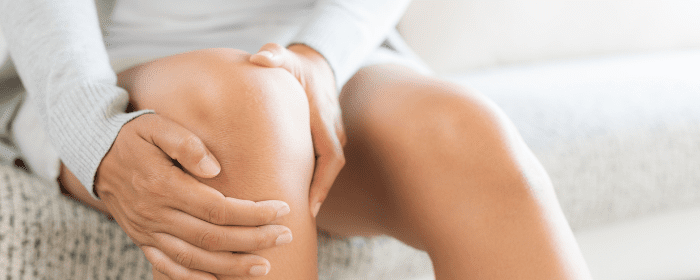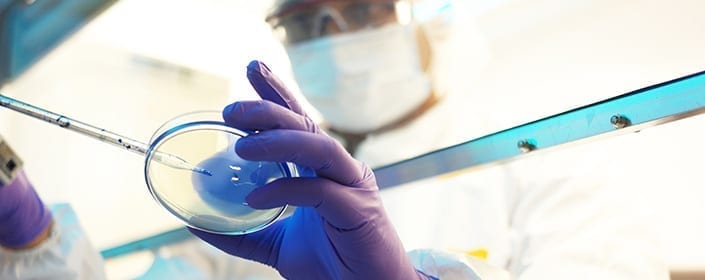
by Stemedix | Feb 25, 2020 | Stem Cell Therapy
For millions of people across the globe, orthopedic issues cause discomfort, limited mobility, and other frustrating symptoms which make it challenging to participate in daily activities. Osteoarthritis, for example, affects the joints by wearing away the cushiony cartilage between bones. While the prevalence of the condition is on the rise, conventional treatments are still lacking: patients are often required to choose between temporary fixes such as medications to mask the pain or invasive surgical procedures. And, this isn’t isolated to osteoarthritis; patients with other orthopedic issues face similar dilemmas. For those suffering, there are several benefits of stem cell therapy for orthopedic issues.
This treatment involves the targeted administration of stem cells, which can self-renew and transform into virtually any cell type in the body. Researchers believe they hold tremendous healing potential for orthopedic issues due to their abilities to change into cartilage cells, minimize inflammation, and release cytokines to reduce pain and slow the degenerative process.
Below, discover some of the benefits of stem cell therapy for orthopedic issues, as well as the types of conditions they can treat.
Common Orthopedic Conditions Treated with Stem Cell Therapy
The potential applications for stem cell therapy span far and wide. Not only have they been used to treat orthopedic conditions, but they’re also used for patients with neurodegenerative and autoimmune conditions.
Some of the specific orthopedic issues being treated by stem cell therapy include:
· Osteoarthritis
· Sports and athletic injuries
· Musculoskeletal injuries
· Spinal cord injuries
· Degenerative disc disease
Benefits of Stem Cell Therapy for Orthopedic Issues
There are many advantages to stem cell therapy. Here are just a few of the most noteworthy benefits to consider:
· Reduced pain and inflammation
· The ability to delay or prevent the need for invasive surgery
· Increased healing potential
· An all-natural treatment
· Safe and effective
Finally, but perhaps most importantly, this regenerative therapy can give new hope to patients who haven’t seen results from other treatment methods. Stem cell treatment could help to restore mobility, alleviate pain, reduce inflammation, and enhance overall quality of life — outcomes which may have previously seemed unattainable to patients with orthopedic issues.

by admin | Jan 11, 2017 | Studies
A group of scientists, led by Jin Nam at the University of California-Riverside, have found a new way to optimize the use of stem cells for orthopedic purposes. The technique involves strategically using biomechanical forces to create the specific cell type needed to repair orthopedic tissues.
The normal development of bone and cartilage critically depend on mechanical stimulation, yet the ideal level of mechanical stimulation differs for cells that make up bone and cells that make up cartilage. The researchers therefore reasoned that employing the right level of mechanical stimulation could help stem cells differentiate into the cell type needed for specific individual injuries.
A certain type of stem cell, called the mesenchymal stem cell (MSC) has been shown to be capable of regenerating musculoskeletal tissues. In addition, when MSCs obtained from the patient are used to regenerate that patient’s musculoskeletal tissues, tissue rejection tends to be prevented because the immune system recognizes the transplanted cells as the body’s own cells. Nonetheless, stimulating the stem cells to form tissue has relied mainly on biochemical and biophysical phenomena, which can present a variety of challenges. To avoid those challenges, scientists hoped that they could use biomechanical stimulation for the same purpose.
In their experiment, Nam and his colleagues showed that different levels of biomechanical force could indeed lead MSCs to differentiate into osteoblasts and chondrocytes, the cells that make up bone and cartilage, respectively. These promising results suggest that combining these types of stem cells with targeted biomechanical stimuli will enable better repair of a variety of types of orthopedic damage.
Going forward, researchers hope to better understand the details of how biomechanical cues can determine the fate of stem cells and to use this information to induce stem cells to differentiate into the desired cell type, according to the particular injury. This experiment conducted at the University of California-Riverside helps shed more light on the continued value of stem cells in medicine, as well as the potential benefits of combining these cells with approaches that can help personalize the treatments offered.
Stem cells could revolutionize therapeutic strategies for cartilage repair. Find out more.
Reference
Horner, C.B. et al. (2016). Magnitude-dependent and inversely-related osteogenic/chondrogenic differentiation of human mesenchymal stem cells under dynamic compressive strain. Journal of Tissue Engineering & Regenerative Medicine. doi: 10.1002/term.2332



 St. Petersburg, Florida
St. Petersburg, Florida
